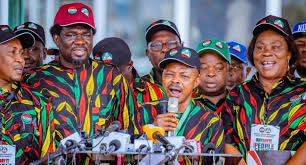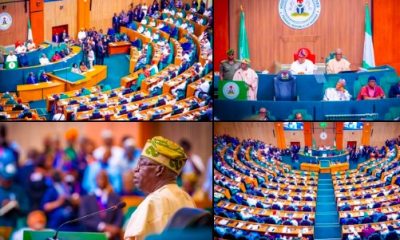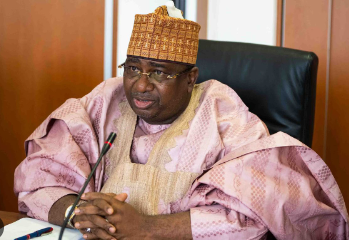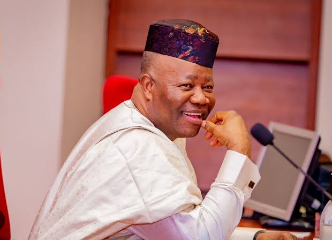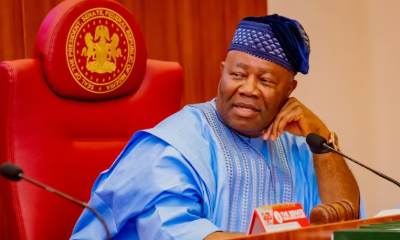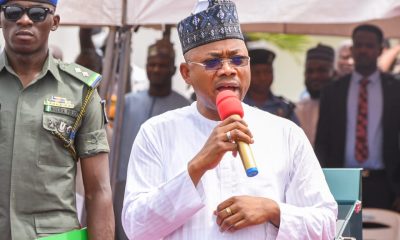The Committee for the Defense of Human Rights (CDHR) has declared support for the indefinite national strike embarked upon by the Organized Labour in protest of the delay in the implementation of the minimum wage by the federal government.
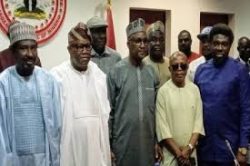
NLC and TUC leaders with National Assembly leaders after failed negotiation
CDHR, President, Debo Adeniran, in a statement affirmed that the CDHR has thrown its weight behind the strike action being called by the leading labour unions in the country, comprising the Nigeria Labour Congress (NLC) and the Trade Union Congress (TUC).
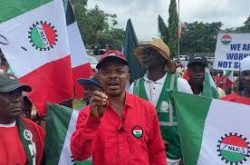
Joe Ajero, NLC President, leading the national strike
According to the CDHR, “it would be recalled that the organized labour comprising the Nigeria Labour Congress (NLC) and the Trade Union Congress (TUC) has announced the commencement of an indefinite nationwide strike starting Monday, June 3rd, 2024.
“The action comes as a direct response to the unfruitful negotiations with the government over the proposed minimum wage and the recent controversial increase in electricity tariffs.
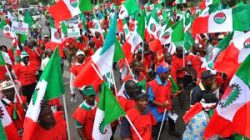
NLC, TUC members on mass action
“The negotiations finally collapsed after failed 7th attempt by the 37 members tripartite committee to reach a definite new minimum wage figure for Nigerian workers with the organised labour expressing frustration over the government’s lack of commitment and representation at the negotiation meeting.
CDHR, in the statement by the President, Debo Adeniran, accordingly, declared: “We are in support of the strike because we believe there is no reason for the increases in prices of macroeconomic products while citizen’s purchasing power dwindles.
“All essential commodities are supposed to be subsidized or made generously available for the people, since the government cannot do this, it is important for government to pay workers more reasonable wage than what is obtained now.
“The current economic realities have drastically reduced the purchasing power of the average Nigerian worker. Inflation, rising cost of living, and the continuous devaluation of the naira have made it increasingly difficult for many families to sustain or meet their basic needs.
“We believe that if Nigerian workers are paid a “living wage”, it would translate into better living conditions for millions of Nigerian families, and could also help to reduce corruption among civil servants in the country, thereby, ensuring greater prosperity for all and aiding the growth and development of the economy of the country.
“Increment in the minimum wage would also boost the morale of Nigerian workers and could also lead to enhanced and greater productivity among the workforce.”
The President of CDHR further insisted: “fair wage that would reflect the current economic realities should not be less than N200,000 and it should be regularly reviewed to keep pace with inflation and cost of living adjustments.”
“We urge the government to engage the Labour Union in constructive and meaningful negotiations aimed at reaching a mutually beneficial agreement on the minimum wage,” Debo Adeniran declared.

 Entertainment1 week ago
Entertainment1 week ago
 Business1 week ago
Business1 week ago
 Health1 week ago
Health1 week ago
 Business1 week ago
Business1 week ago
 Latest1 week ago
Latest1 week ago
 Football1 week ago
Football1 week ago
 Entertainment1 week ago
Entertainment1 week ago
 Entertainment6 days ago
Entertainment6 days ago
